
Commonplace Books: A Universal Note-Taking Method That Unites Humanity Across Time and Space
From Ancient Greece to China to Harvard, Commonplace Books Endure
May 3, 2020
Hi, Dan here. I’m thrilled to have Tiago Forte joining the bundle this week with one of his Praxis Members-Only articles. Here, Tiago writes about one of the most interesting systems I’ve come across for recording and preserving knowledge: the commonplace book. It’s a kind of journal, but it’s explicitly for recording observations from other sources: books, talks, sermons, lectures, etc. It’s a practice that spans centuries and endures to present day; some readers may remember Kevin Yien keeps a digital commonplace book as part of his productivity stack. The history of this practice, and its practitioners, from Euclid to Ralph Waldo Emerson, are fascinating, and offer keen insight into commonplace books’ function and power. I hope you enjoy reading about them!
One of the clearest predecessors to the modern practice of personal knowledge management are “commonplace books” – centralized, personally curated, and continuously maintained collections of information from various sources that rose to popularity during the Enlightenment and Industrial Revolution in Europe.
These books helped educated people cope with the “information explosion” unleashed by the printing press and industrialization. They were highly idiosyncratic, personalized texts used to make sense of a new world of intercontinental trade, long-distance communication, and mass media. Commonplace books could contain recipes, quotes, letters, poems, tables of weights and measures, proverbs, prayers, legal formulas, notes from sermons, and remedies for common maladies, among many other things.
Their keepers would transcribe interesting or inspirational passages from their reading, assembling a personalized encyclopedia of quotations, ideas, anecdotes, observations, and other information they came across. The purpose of the book could range from personal recollection and reflection, to source material for writing, speaking, politics, or business.
Origins of the Commonplace
The word “commonplace” can be traced back to Ancient Greece, where a speaker in law courts or political meetings would keep an assortment of arguments in a “common place” for easy reference. The Romans called them locus communis, which means “a theme or argument of general application,” such as a statement of proverbial wisdom.
For many centuries, great thinkers and intellectuals maintained ongoing records of their work. Shakespeare had something like a commonplace in mind when he wrote in Sonnett lXXVII:
Look, what thy memory cannot contain Commit to these waste blanks, and thou shalt find Those children nurs’d, delivered from thy brain, To take a new acquaintance of thy mind…
But the commonplace book would only come into its own during the European Enlightenment, when an exploding volume of printed media collided with changing political and societal norms. The commonplace book provided a private place for people to work out their thoughts and ideas about the dramatic changes taking place around them.
John Locke’s A New Method of Making Common-Place-Books
By the 17th century, students at universities such as Oxford were being formally taught commonplacing as an academic practice.
It was there in 1652 that philosopher John Locke began his own commonplacing habit, which would become the most famous and prototypical example of the era. He thought it such an important practice that he attached a description of his method to An Essay Concerning Human Understanding, one of his most important works. In 1706 he published a book dedicated to the topic, called A New Method of Making Common-Place-Books.
Cover of Locke’s book explaining his commonplacing method
Locke taught techniques for recording proverbs, quotations, ideas, and speeches into a commonplace book, including specific advice on how to arrange material by subject and category using such key topics as love, politics, or religion. Locke stressed that these were not journals, which were typically chronological and introspective. Instead, they could be assembled in any order according to any number of different criteria, and allowed their keeper to act in the external world more effectively.
Locke’s commonplace method gained popularity because it provided just enough order to find things when you were looking for them, while also allowing for unexpected, unplanned meanderings. For each book, he recommended two pages with an expandable index, containing a line for every letter of the alphabet and subdivisions for each vowel.
In his own words: “We extract only those Things which are Choice and Excellent, either for the Matter itself, or else the Elegancy of the Expression, and not what comes next.” His method was not just for collecting, but for curating and filtering one’s information consumption, ensuring that only the “Choice and Excellent” parts were remembered.
Perhaps the best testament to Locke’s legacy was that toward the end of the 18th century, a publisher named John Bell translated Locke’s method into his own book, Bell’s Common-Place Book, Formed generally upon the Principles Recommended and Practised by Mr Locke.
It included eight pages of instructions on Locke’s indexing method, which he said not only made it easier to find passages, but also served the higher purpose of “facilitat[ing] reflexive thought.” Commonplacing itself had been digested and reinterpreted for a new era and a new audience.
Locke’s method was especially rigorous, but also characteristic of learned people of his time. According to a widely quoted passage by Robert Darnton:
“Unlike modern readers, who follow the flow of a narrative from beginning to end (unless they are digital natives and click through texts on machines), early modern Englishmen read in fits and starts and jumped from book to book. Theybroke texts into fragments and assembled them into new patterns by transcribing them in different sections of their notebooks. Then they reread the copies and rearranged the patterns while adding more excerpts. Reading and writing were therefore inseparable activities. They belonged to a continuous effort to make sense of things, for the world was full of signs: you could read your way through it; and by keeping an account of your readings, you made a book of your own, one stamped with your own personality… By selecting and arranging snippets from a limitless stock of literature, early modern Englishmen gave free play to a semi-conscious process of ordering experience. The elective affinities that bound their selection into patterns reveal an epistemology — a process of knowing — at work below the surface.”
– “Extraordinary Commonplaces,” New York Review of Books 47; December 21, 2000
In other words, commonplace books were both a thinking and a sense-making tool that put the ideas of others and one’s own interpretations on equal footing. It placed both reading and writing into a continuous loop of learning that helped a person find their bearings in an intellectual and historical context.
Commonplacing during the Enlightenment
Many other influential thinkers and writers used a form of commonplacing to support their work.
English philosopher and statesman Francis Bacon kept a rough list of elegant and useful phrases gleaned from reading and conversation, which he used as a source in writing and probably also as a promptbook for public speaking. It was eventually published in 1883 with the title “The Promus of Formularies and Elegancies,” containing 1,655 handwritten proverbs, metaphors, aphorisms, salutations, and other miscellanies.
A page from Bacon’s commonplace book, containing Latin quotations
English poet, man of letters, and civil servant John Milton, best known for his epic poem Paradise Lost, kept excerpts from upwards of eighty authors in English, French, Italian, Latin, and Greek. His commonplace book included not just passages copied verbatim, but “Instances and Conclusions deduced from, or fortified by references to, them.” Early versions of many of his most famous writings can be seen scribbled in the margins.
A page from Milton’s commonplace book, with notes on marriage, adultery, and divorce on the left page
One interesting aspect of Milton’s commonplace was that he very rarely cited his sources directly. Even though he often had notes from well-known authors that would have added credibility to his writing, he was also famous for his aversion to authority, so, according to a commentary by the historical publication group the Camden Society, “the written thoughts of other authors were used by him as mental food to be digested and assimilated, and at fit times to be reproduced from his brain in better or varied forms” .
Other well-known figures from European and American history known to have maintained commonplace books include theologian William Paley, short story writer Katherine Mansfield, poet Samuel Taylor Coleridge, author Mark Twain, novelist Thomas Hardy, essayist E.M. Forster, writer Aldous Huxley, horror fiction writer H.P. Lovecraft, and poet W.H. Auden. Even fictional characters used commonplace books, such as Sherlock Holmes in “The Adventure of the Veiled Lodger,” when he uses one to investigate a crime.
Drafts of poems from Katherine Mansfield’s notes
Both Ralph Waldo Emerson and Henry David Thoreau were taught to keep commonplace books at Harvard University, and both survive in published form. Lawrence Rosenwald links this to the specifically American tradition of transcendentalism:
Longhand notes by Ralph Waldo Emerson
“Emerson has chosen to put in his diary not only the continuous record of his life and thought but also the thousand evanescent thoughts by which that record is complicated. In his book, that is, the private and public, the eternal and the contingent, the life and the work will inevitably collide and fuse. Losty speculations must be shown to have arisen in time, in a sequence of other events, from the mind of a particular human being.” (59, qtd by Serfaty 2004, 46)
Commonplacing for writers
It is clear that commonplacing is especially attractive to authors and writers, who need a constant supply of material to draw from. American teacher and reformer Amos Bronson Alcott explained why in 1877:
“The habit of journalizing becomes a life-long lesson in the art of composition, an informal schooling for authorship. And were the process of preparing their works for publication faithfully detailed by distinguished writers, it would appear how large were their indebtedness to their diary and commonplaces. How carefully should we peruse Shakespeare’s notes used in compiling his plays—what was his, what another’s—showing how these were fashioned into the shapely whole we read, how Milton composed, Montaigne, Goethe: by what happy strokes of thought, flashes of wit, apt figures, fit quotations snatched from vast fields of learning, their rich pages were wrought forth! This were to give the keys of great authorship!”
Virginia Woolf echoed this sentiment almost a hundred years later:
“[L]et us take down one of those old notebooks which we have all, at one time or another, had a passion for beginning. Most of the pages are blank, it is true; but at the beginning we shall find a certain number very beautifully covered with a strikingly legible hand-writing. Here we have written down the names of great writers in their order of merit; here we have copied out fine passages from the classics; here are lists of books to be read; and here, most interesting of all, lists of books that have actually been read, as the reader testifies with some youthful vanity by a dash of red ink.”
Throughout history, commonplacing or journaling was indispensable to writers – as creative raw material, as a place for rough drafts, and to keep track of sources and inspirations.
Commonplacing around the world
Although most surviving records of commonplace books come from early modern Europe and the United States, similar practices arose in many other parts of the world.
Ancient Greece
In addition to giving us the word “commonplace,” Ancient Greeks also used hypomnema (Greek: ὑπόμνημα), which can be translated as a reminder, a note, a public record, a commentary, an anecdotal record, a draft, a copy, and other variations on those terms.
Beginning with Plato’s theory of anamnesis, which argued that humans possess innate knowledge (perhaps acquired before birth) and that learning consists of rediscovering that knowledge within us, hypomnema were used to aid in this “rediscovery.”
According to Michel Foucault, “The hypomnemata constituted a material memory of things read, heard, or thought, thus offering these as an accumulated treasure for rereading and later meditation. They also formed a raw material for the writing of more systematic treatises in which were given arguments and means by which to struggle against some defect (such as anger, envy, gossip, flattery) or to overcome some difficult circumstance (a mourning, an exile, downfall, disgrace).”
The Greeks used their notes to self-improve
Foucault continues: “In this period there was a culture of what could be called personal writing: taking notes on the reading, conversations, and reflections that one hears or engages in oneself; keeping kinds of notebooks on important subjects, which must be reread from time to time so as to reactualize their contents.”
Euclid’s “Eukleidou Hypomnema,” one of only two works on pure geometry to have survived in the original Greek
Ancient Rome
Ancient Romans made use of documents called commentarii, often recorded by an official known as a commentariis. They consisted of notes to assist the memory, including notes and abstracts of speeches to assist orators, family memorials (the origin of many of the legends introduced into early Roman history glorifying a particular family), and diaries of events occurring in their social circle kept by private individuals.
A well-known example is Commentarii de Bello Gallico, Julius Caesar’s firsthand account of the Gallic Wars, written as a third-person narrative. The official acts of the Roman Emperor were recorded in the Commentarii Principis, the commentarii diurni was a daily court journal, and the commentarii magistratuum kept records used by magistrates. Seemingly every important function of the Roman state had their own note-taking system.
First page of De bello Gallico, from a 1469 manuscript
China
Biji (Chinese: 筆記) is a genre in classical Chinese literature that first appeared during the Wei and Jin dynasties in the third century AD, and matured during the Tang Dynasty by the 7th century. The word translates roughly to “notebook,” and could contain anecdotes, quotations, random musings, philological speculations, literary criticism, short fictional stories, and anything else that the author thought worth recording.
A famous example of a biji is Miscellaneous Morsels from Youyang, a miscellaneous collection of Chinese and foreign legends and hearsay reports on natural phenomena, short anecdotes, and tales of the wondrous and mundane, as well as notes on such topics as medicinal herbs and tattoos.
Japan
In Japan, the zuihitsu genre (known more commonly as “pillow books”) rose to popularity among the new merchant classes of the Edo period starting in the 17th century. Pillow books were collections of notes or notebooks collated to represent a period in someone’s life.
The most famous example is The Pillow Book (枕草子 Makura no Sōshi), containing observations and musings recorded by Sei Shōnagon during her time as court lady to Empress Consort Teishi during the 990s and early 1000s. The book was completed in the year 1002 during the Heian Period, when people in the imperial court were expected to be educated in writing. Writing by women was popular in this era because they wrote in the vernacular Japanese, which could be understood by common people, whereas men wrote in Chinese, which was seen as higher status.
Shōnagon’s work consists of a collection of essays, lists, anecdotes, poems, and descriptive passages that have little connection to one another except for the fact that they occurred to Shōnagon in her daily life. In it she included 164 lists on all kinds of topics (such as “Things That Make the Heart Grow Fonder”), personal thoughts, interesting events in court, poetry, and some opinions on her contemporaries.
Sei Shonagon Viewing the Snow, Utagawa Yoshitora, from the series Calligraphy and Pictures for the Fiftythree Stations of the Tôkaidô, woodblock print, ink and color on paper, 1872
Poland and Lithuania
Noble families in Poland and Lithuania in the 16th to 18th centuries kept a silva rerum, an intergenerational notebook designed to preserve anything the family wanted future generations to know: diary-type entries on current events, memoirs, letters, political speeches, copies of legal documents, gossip, jokes and anecdotes, financial documents, economic information (such as the price of grain), philosophical musings, poems, genealogical trees, advice (agricultural, medical, moral) for their descendants and others.
These books usually contained hundreds of pages, but could reach into the thousands. They were, for the most part, not intended for publication or distribution, although they were sometimes lent to other families, who could add their own comments. Much of our knowledge of historical Polish poems and the customs of Polish nobility come from silvae.
Silva Rerum of Krassowscy (Ślepowron coat of arms) family from Ziemia Drohicka in Podlasie
Commonplacing today: Lessons for the 21st Century
What does the venerable practice of commonplacing have to teach us today? Like the early years of the Industrial Revolution in Europe, we too are struggling with an explosion of new sources of information at an unprecedented scale.
So many of our behaviors online are oriented toward what is new and public – the latest political controversy, the new celebrity scandal, or the viral meme of the day.
Resurrecting the commonplace book gives us the opportunity to turn back the tide at the most fundamental level, shifting our relationship with information toward the reflective and private.
Instead of consuming ever greater amounts of “content,” we could take on a more patient, thoughtful approach to learning that favors re-reading, re-formulating, and working through the implications of ideas over time. This could not only lead to more civil discussions about the important topics of the day, but also preserve our mental health and our splintered attention.
But this isn’t simply a return to the past. We also have the opportunity to make the commonplace book digital, supercharging it with all the incredible capabilities of modern technology, such as full-text search, ubiquitous accessibility, easy sharing, and links directly to original sources. As Kevin Kelly says in his article Post-Artifact Booking:
“Imagine a future where instead of lending someone a book, you lend them your bookmarks. Where your notes, annotations and references are synchronized across platforms and applications. Where your bookmarks belong to you, and a record of every book you read is saved and stored securely, no matter how or where you read it.”
The digital age also presents unique challenges to the ancient art of commonplacing: the information that matters to us is now spread across dozens of different formats and platforms, from Kindle highlights to Tumblr shares to Facebook posts to Twitter retweets. Each of these platforms gives us valuable capabilities, at the cost of splintering our body of knowledge into tiny pieces.
One thing is clear: during times of intense change and uncertainty, people need an outlet for expressing their thoughts, working through new ideas, and preserving what they find valuable and worth remembering. This place needs to be private, low risk, and under their control. The challenge of modern knowledge management is to create spaces where creative note-taking can thrive, without letting it be drowned out by a deluge of incoming information.
The Only Subscription
You Need to
Stay at the
Edge of AI
The essential toolkit for those shaping the future
"This might be the best value you
can get from an AI subscription."
- Jay S.
Join 100,000+ leaders, builders, and innovators

Email address
Already have an account? Sign in
What is included in a subscription?
Daily insights from AI pioneers + early access to powerful AI tools

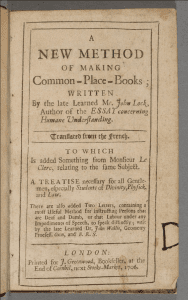
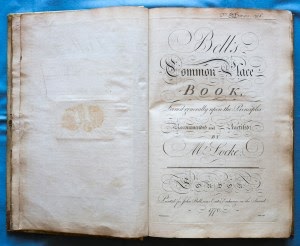
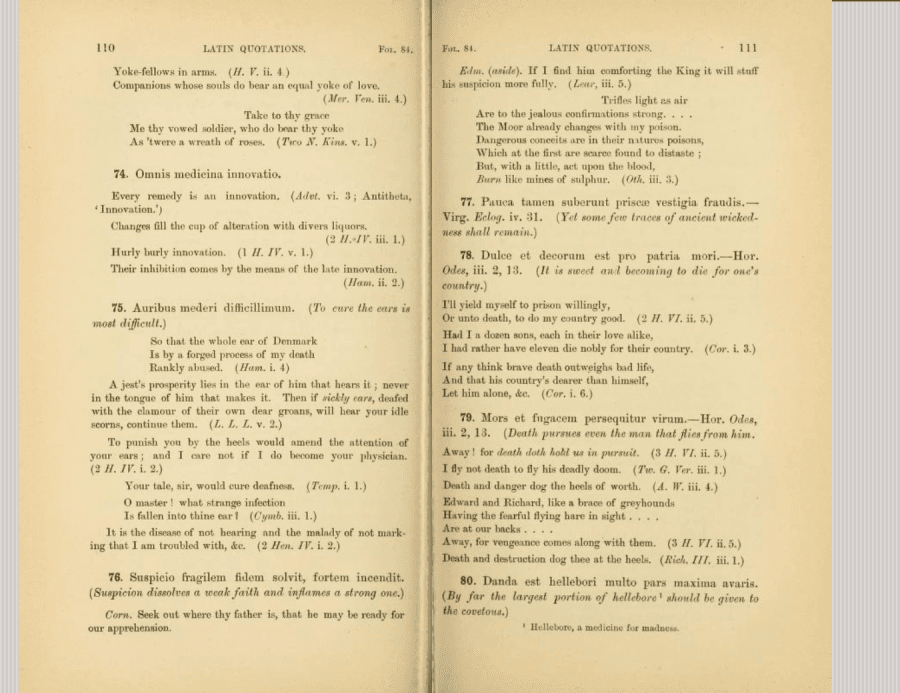
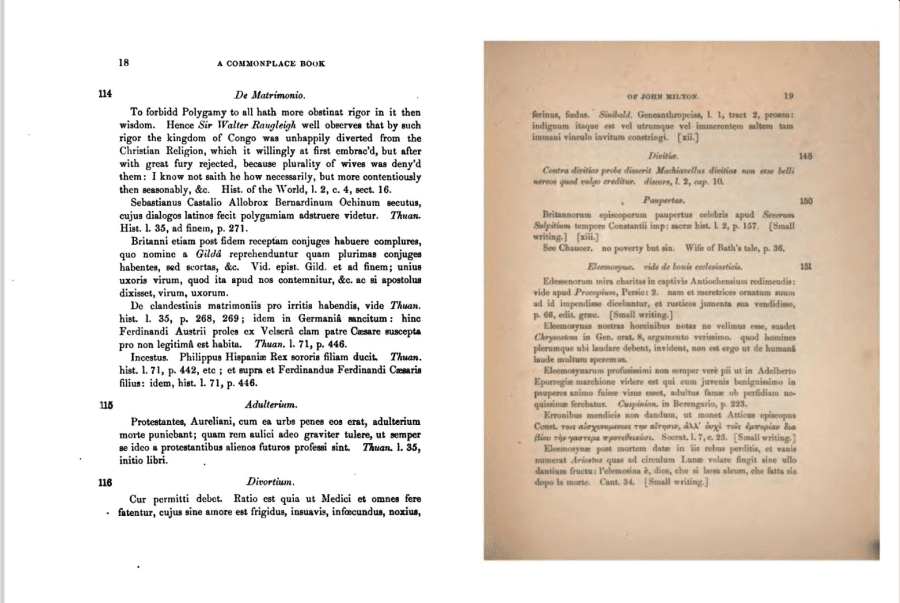
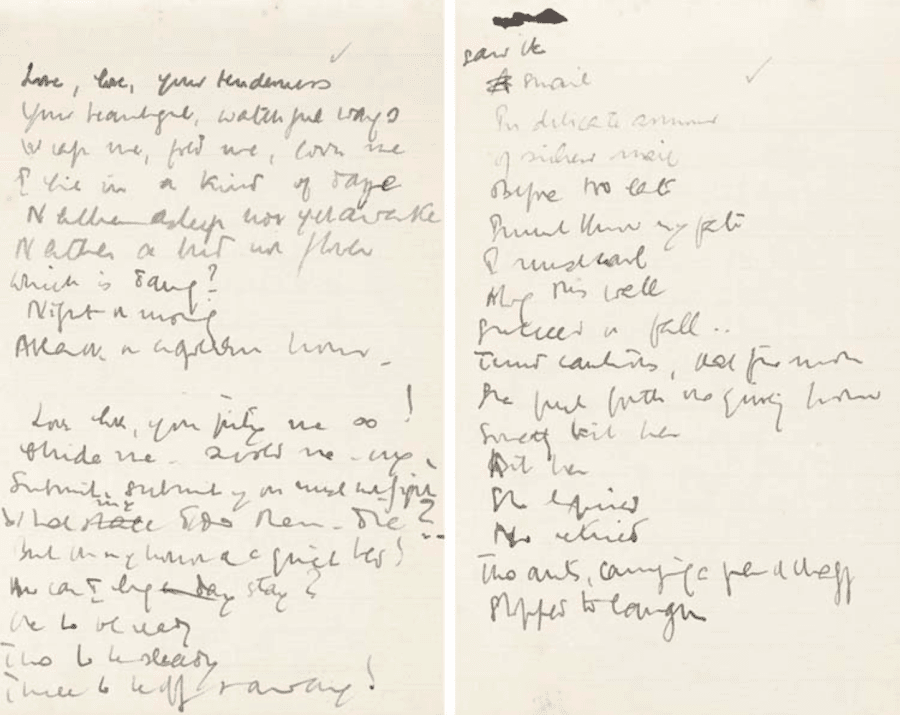
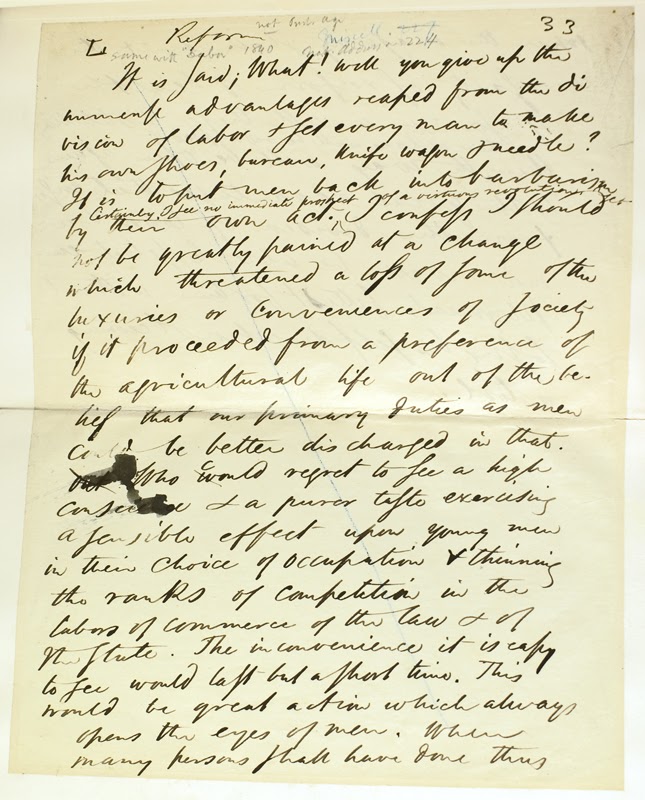
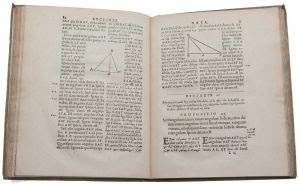










Comments
Don't have an account? Sign up!